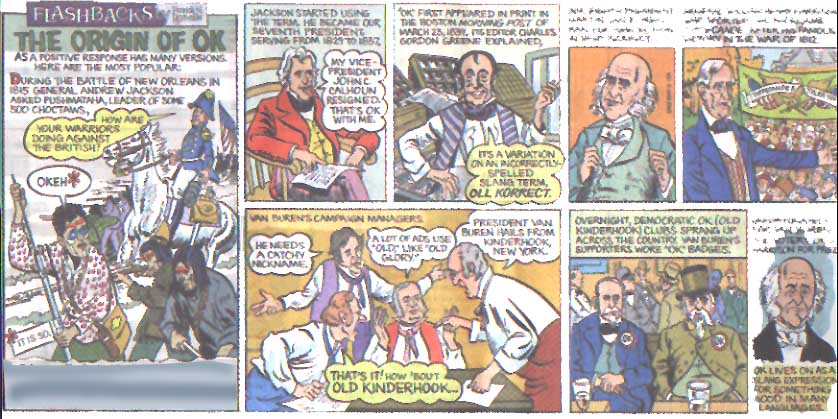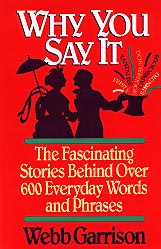 |
Why You Say It by Webb Garrison
Great Scott! This does not beat around the bush. It
spills the beans with the scuttlebutt on the screwball
origins of over 600 terms in our lingo. Most blurbs will tickle
your funny bone. The upshot of it all is that we cannot
hype this book enough.
5¼ x 8½” 356 pages, paperbound ISBN
1-55853-128-0
#185 Why You Say It $14.95

Here are more books on the origin of
words and phrases:
|
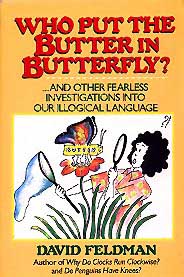 |
Who
Put the Butter in Bufferfly?...and other fearless investigations
into our illogical language
by David Feldman
The English lingo has words that are downright peculiar: cooties,
doozies, and heebie-jeebies; finks and funks; mugwumps and nuumuus;
deepsix and could nine; Don’t beat around the bush, or wait
until the eleventh hour, or until the jig is up before you order
this terrific reference book.
5¼" x 8" 209 pages, index, drawings, paperbound
ISBN 0-06-091661-3
#438 Butter in Butterfly $12.95 |
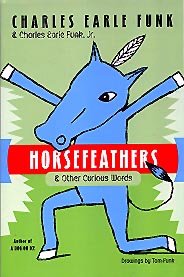 |
Horsefeathers
& Other Curious Words
by Charles Earle Funk
Know why the candy is called butterscotch; why a certain southern
food is called hush puppy; why log supports in a fireplace are
known as andirons or sometimes firedogs? The editor-in-chief
of the Funk and Wagnalls Standard Dictionary tells about the
origins of over 600 words such as cubbyhole, stevedore, hornswoggle,
crowbar, juke box, tantamount, handkerchief, and more.
5¼" x 8" 240 pages, index, drawings, paperbound
ISBN 0-06-051337-3
#437 Horsefeathers $12.95
 |
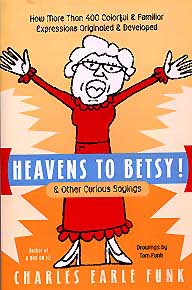 |
If
you ever wondered why when you're in a hurry, you were told to
hold your horses, wonder no more!
Heavens to Betsy & Other Curious Sayings
by Charles Earle Funk
Whether it's like a bump on a log or a bat out of hell,
these expressions have been around forever, but we've never
really known why...until now. Finally Dr. Funk explains more
than 400 droll, colorful, and sometimes pungent expressions of
everyday speech. Derived from classical sources, famous literature,
frontier humor, and the frailties of humankind, each of these
sayings has an interesting story behind its origin.
5¼" x 8" 224 pages, index, drawings, paperbound
ISBN 0-06-051331-4
#407 Heavens to Betsy $12.95
 |
